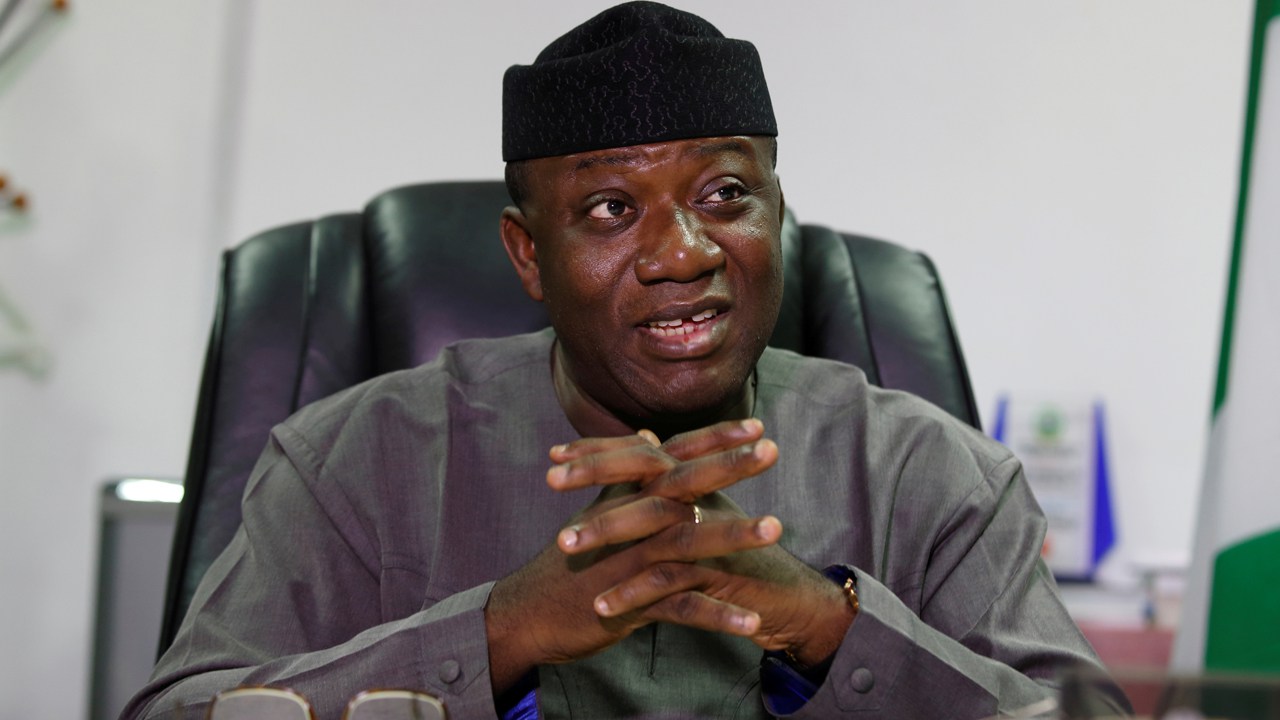The United States government may have begun implementing its travel ban policy on “individuals responsible for undermining the Nigerian democratic process” with the denial of travel visa to Kayemi Fayemi, the governor of Ekiti State.
According to 247reports, Dr. Fayemi, who is also the leader of the Nigerian Governors’ Forum was denied a US visa this past week. He had planned to travel to the US as the head of the governors’ forum on a trip organised by Aliko Dangote, the president and chief executive of Dangote Group.
Fayemi learnt of the decision of the United States Embassy to reject his visa application on Wednesday, November 6, 2019.
“Dr. Fayemi in full blown anger dashed out to the Embassy,” the news report said.
“He demanded for the reason he was rejected. He was told to contact the appropriate offices to further details. Dr.. Fayemi was not please. Enraged, the Ekiti Governor tore the USA visa rejection documents and threw it at the Embassy officials.”
The governors’ forum was to be in the United States to meet with the Bill and Melinda Gates Foundation.
Following this development, Fayemi reportedly called his colleagues to cancel the US trip. However, several governors broke ranks with him and opted to travel without him.
An advanced team of aides of Governor Fayemi were already in the US to prepare for his arrival. The team was called back from Nigeria.
“Interestingly, it was gathered that the reason for the USA rejection of Fayemi had to do with the gubernatorial elections of Ekiti State,” the news outlet reported. “The USA government believes the election was conducted under shady circumstances. Our source indicates that the USA government believes the election was rigged.”
2019 Election: US Government Imposes Visa Ban On Nigerian Government Officials
The U.S. Government has imposed visa restrictions on “individuals responsible for undermining the Nigerian democratic process”.
Morgan Ortagus, a spokesperson of the U.S. Department of State, who announced this in a statement on Tuesday, July 23, 2019, said the action applied to those responsible for election-related violence.
Ortagus said the unidentified individuals had “operated with impunity at the expense of the Nigerian people and undermined democratic principles and human rights”.
News Agency of Nigeria, NAN, reports that no fewer than 39 persons died in violence related to the last general elections in the country.
The action, according to the spokesperson, is in fulfillment of the U.S. government’s earlier promise to consider sanctions against anti-democratic forces, including organisers of election-related violence in the country.
“In a Jan. 24 statement, the U.S. government said that we would consider consequences – including visa restrictions – for individuals responsible for undermining the Nigerian democratic process or for organising election-related violence.
“To that end, the Secretary of State is imposing visa restrictions on Nigerians believed to be responsible for, or complicit in, undermining democracy in Nigeria.
“These individuals have operated with impunity at the expense of the Nigerian people and undermined democratic principles and human rights,” she said.
The spokesperson emphasised that the restrictions targeted at specific individuals and not directed at the Nigerian people or the newly-elected government.
She explained that the decision reflected the Department’s commitment to working with the Nigerian government in its anti-corruption crusade and efforts to strengthen democracy, accountability and respect for human rights.
“The United States is a steadfast supporter of Nigerian democracy.
“We commend all those Nigerians who participated peacefully in the February and March 2019 elections and have worked to strengthen Nigerian democratic institutions and processes.
“As Nigeria marks the 20th anniversary of a return to democratic rule this year, we remain committed to working together to continue to advance democracy and respect for human rights and achieve greater peace and prosperity for both our nations.
“We condemn those whose acts of violence, intimidation, or corruption harmed Nigerians or undermined the democratic process,” the spokesperson added.







